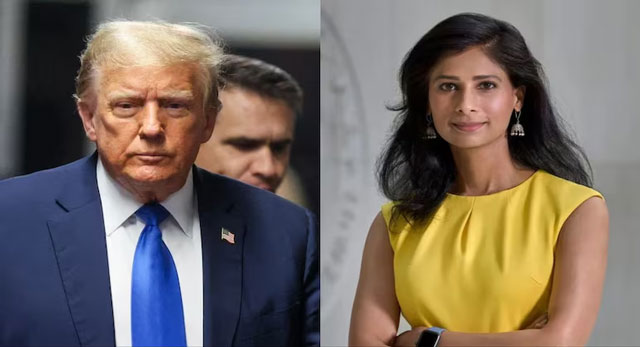Daijiworld Media Network - Washington
Washington, Oct 8: US President Donald Trump’s sweeping tariff measures, which included up to 50% duties on imports from countries such as India and Brazil and an unprecedented 100% tariff on branded and patented pharmaceutical drugs, have drawn sharp criticism from leading economists and trade experts.
In her assessment of the six-month-old policy, Harvard Economics Professor and former IMF Chief Economist Gita Gopinath delivered a “negative verdict”, stating that the tariffs have done little to strengthen the US economy.

In a post on X (formerly Twitter), Gopinath said that while the tariffs substantially increased government revenue, they acted as a tax on US firms and consumers, raising prices on household appliances, furniture and coffee, thereby fuelling inflation. However, she observed that there was no improvement in the US trade balance or in the country’s manufacturing sector, leaving the overall impact of the policy negative.
Gopinath’s remarks have reignited debate over Trump’s protectionist policies, which were billed as a move to revive domestic manufacturing and reduce America’s trade deficit.
Meanwhile, several experts have also questioned the rationale behind the tariff escalation. On October 4, JNU Professor and China studies expert Srikanth Kondapalli argued that the tariffs on India were “ego-driven” rather than rooted in economic strategy. He said Trump’s trade offensive should have been directed at China but instead targeted India for “personal egoistic reasons”.
Echoing similar concerns, Bhaskar Chakravorti, Dean of Global Business at The Fletcher School of Law and Diplomacy at Tufts University, said the 100% tariff on branded pharmaceuticals was unlikely to hurt India immediately but warned that tariffs on Indian generic drugs could not be ruled out in the future.
The debate underscores growing unease among economists and business leaders over Trump’s aggressive tariff regime, which many believe could strain global trade relations without delivering the promised benefits to US industries.